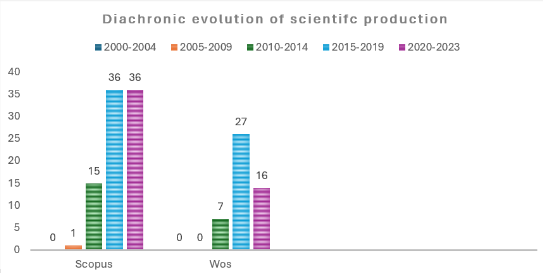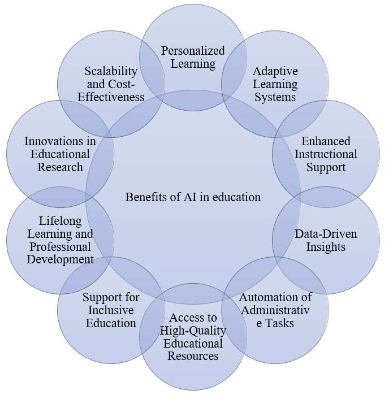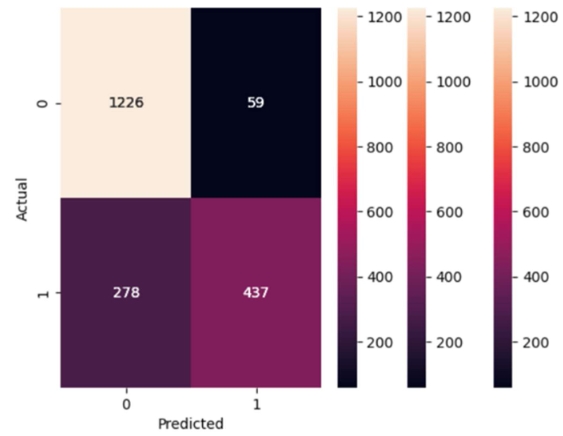Triggering factors affecting primary school children in Lebanon: A pilot cross-sectional study
Abstract
Purpose: Academic pressures, the fear of failure, social expectations, and high expectations from parents or teachers can all contribute to performance-related stress or anxiety in children. This study aims to assess the triggers encountered by primary schoolchildren and examine the interrelatedness between them and the characteristics of the students. Methods: A pilot cross-sectional study targeted primary school children over two months. Two pharmacists and a psychologist collected data using a standardized survey. Students were asked to assess their social (10 statements), behavioral (10 statements), environmental (10 statements), and academic (16 statements) triggers. Results: Environmental triggers had the highest score (4.92 (1.92)), followed by behavioral triggers (4.21 (1.70)). Social triggers were the least reported (3.52 (1.59)). After adjusting for covariates, age, sex, and grade did not affect the academic triggers of the students (p > 0.05), while having divorced or separated parents significantly increased these triggers (B = 0.22; p = 0.025). The social triggers and stressors significantly decreased (B = −0.28; p = 0.003) per grade increase. In contrast, having divorced parents significantly increased these scores (B = 0.21; p = 0.025). Environmental triggers significantly decreased per increase of one year in age (B = −0.23; p = 0.013), with the same pattern observed for the overall trigger scores (B = −0.28; p = 0.003). Conclusion: Promoting open communication, creating an inclusive environment, establishing achievable academic goals, and regular follow-up with students can be effective strategies to reduce school triggers among those at high risk.
References
[1]Jones PJ, Bellet BW, McNally RJ. Helping or Harming? The Effect of Trigger Warnings on Individuals with Trauma Histories. Clinical Psychological Science. 2020; 8(5): 905-917. doi: 10.1177/2167702620921341
[2]Perrotta G. Psychological trauma: definition, clinical contexts, neural correlations and therapeutic approaches. Current Research in Psychiatry and Brain Disorders. 2019; 2019(1).
[3]Simpson K, Adams D, Wheeley E, et al. Parent Perspectives on the Presentation, Triggers, Impact, and Support of Anxiety in Young Children on the Autism Spectrum. Journal of Child and Family Studies. 2019; 29(2): 572-582. doi: 10.1007/s10826-019-01576-5
[4]Cassady JC. Anxiety in the schools: Causes, consequences, and solutions for academic anxieties. In: Handbook of Stress and Academic Anxiety: Psychological Processes and Interventions with Students and Teachers. Springer; 2022. pp. 13-30.
[5]Gómez Tabares AS, Landinez-Martínez DA. Moral disengagement mechanisms and its relationship with aggression and bullying behaviour among school children and youth at psychosocial risk. Emotional and Behavioural Difficulties. 2021; 26(3): 225-239. doi: 10.1080/13632752.2021.1945801
[6]Moïse-Richard A, Ménard L, Bouchard S, et al. Real and virtual classrooms can trigger the same levels of stuttering severity ratings and anxiety in school-age children and adolescents who stutter. Journal of Fluency Disorders. 2021; 68: 105830. doi: 10.1016/j.jfludis.2021.105830
[7]Caviola S, Visentin C, Borella E, et al. Out of the noise: Effects of sound environment on maths performance in middle-school students. Journal of Environmental Psychology. 2021; 73: 101552. doi: 10.1016/j.jenvp.2021.101552
[8]Kotera Y, Taylor E, Fido D, et al. Motivation of UK graduate students in education: self-compassion moderates pathway from extrinsic motivation to intrinsic motivation. Current Psychology. 2021; 42(12): 10163-10176. doi: 10.1007/s12144-021-02301-6
[9]Najjar D. Effectiveness of Management in Private Schools in Lebanon [PhD thesis]. University of Birmingham; 2009.
[10]Daher J. Lebanon, How the Post-War’s Political Economy Led to the Current Economic and Social Crisis. European University Institute; 2022.
[11]Hatem G, Omar CA, Ghanem D, et al. Evaluation of the impact of online education on the health-related quality of life of medical students in Lebanon. Educación Médica. 2023; 24(3): 100812. doi: 10.1016/j.edumed.2023.100812
[12]Paudel P. Online Education: Benefits, Challenges and Strategies During and After COVID-19 in Higher Education. International Journal on Studies in Education. 2020; 3(2): 70-85. doi: 10.46328/ijonse.32
[13]Sahlberg P. Does the pandemic help us make education more equitable? Educational Research for Policy and Practice. 2020; 20(1): 11-18. doi: 10.1007/s10671-020-09284-4
[14]Viechtbauer W, Smits L, Kotz D, et al. A simple formula for the calculation of sample size in pilot studies. Journal of Clinical Epidemiology. 2015; 68(11): 1375-1379. doi: 10.1016/j.jclinepi.2015.04.014
[15]Dohmen M, Braat-Eggen E, Kemperman A, et al. The Effects of Noise on Cognitive Performance and Helplessness in Childhood: A Review. International Journal of Environmental Research and Public Health. 2022; 20(1): 288. doi: 10.3390/ijerph20010288
[16]Charles A, Mkulu DG. Management Challenges Facing School Administrators and Pupils’ Academic Performance in Public Primary Schools in Sengerema District Mwanza, Tanzania. Journal of Humanities and Education Development. 2020; 2(3): 191-207. doi: 10.22161/jhed.2.3.5
[17]Massonnié J, Mareschal D, Kirkham NZ. Individual Differences in Dealing with Classroom Noise Disturbances. Mind, Brain, and Education. 2022; 16(3): 252-262. doi: 10.1111/mbe.12322
[18]Gonzálvez C, Inglés CJ, Kearney CA, et al. Relationship between school refusal behavior and social functioning: a cluster analysis approach. European Journal of Education and Psychology. 2019; 12(1): 17. doi: 10.30552/ejep.v12i1.238
[19]Dietrichson J, Filges T, Seerup JK, et al. Targeted school‐based interventions for improving reading and mathematics for students with or at risk of academic difficulties in Grades K‐6: A systematic review. Campbell Systematic Reviews. 2021; 17(2). doi: 10.1002/cl2.1152
[20]Ligier F, Giguère CE, Notredame CE, et al. Are school difficulties an early sign for mental disorder diagnosis and suicide prevention? A comparative study of individuals who died by suicide and control group. Child and Adolescent Psychiatry and Mental Health. 2020; 14(1). doi: 10.1186/s13034-019-0308-x
[21]Haddad C, Chidiac J, Sacre H, et al. Prevalence and Associated Factors of Social Anxiety Among Lebanese Adolescents. The Primary Care Companion for CNS Disorders. 2022; 24(3). doi: 10.4088/pcc.21m03061
[22]Ramón-Arbués E, Gea-Caballero V, Granada-López JM, et al. The Prevalence of Depression, Anxiety and Stress and Their Associated Factors in College Students. International Journal of Environmental Research and Public Health. 2020; 17(19): 7001. doi: 10.3390/ijerph17197001
[23]Alam R, Shakir M. Causes of the Passive Attitude in Children at Early Grade Level. International Journal of social Sciences and Economic Review. 2019; 1(1): 16-21. doi: 10.36923/ijsser.v1i1.24
[24]Reiss F, Meyrose AK, Otto C, et al. Socioeconomic status, stressful life situations and mental health problems in children and adolescents: Results of the German BELLA cohort-study. PLOS ONE. 2019; 14(3): e0213700. doi: 10.1371/journal.pone.0213700
[25]Cusinato M, Iannattone S, Spoto A, et al. Stress, Resilience, and Well-Being in Italian Children and Their Parents during the COVID-19 Pandemic. International Journal of Environmental Research and Public Health. 2020; 17(22): 8297. doi: 10.3390/ijerph17228297
[26]Amca Toklu D. Examination of the social behaviours of pre-school children whose parents are married and divorced according to teacher opinions. Early Child Development and Care. 2020; 192(1): 14-23. doi: 10.1080/03004430.2020.1728531
[27]Amato PR. The Impact of Family Formation Change on the Cognitive, Social, and Emotional Well-Being of the Next Generation. The Future of Children. 2005; 15(2): 75-96. doi: 10.1353/foc.2005.0012
Copyright (c) 2024 Diana Ghanem, Sarah Tarhini, Marwa Manana, Sanaa Awada, Roula Bou Assi, Assem El-Kak, Georges Hatem

This work is licensed under a Creative Commons Attribution 4.0 International License.









